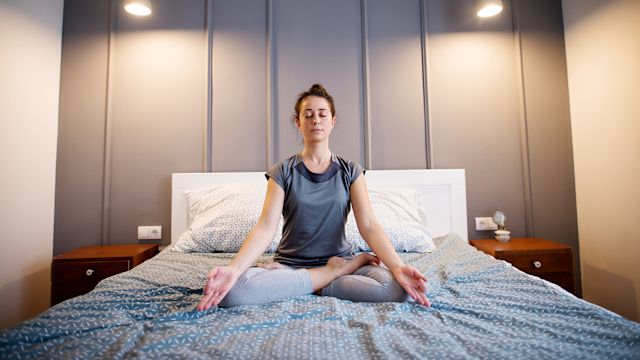Getting the right amount of sleep is important to our mental, physical, and emotional health. However, some people have conditions that cause them to sleep too much or too little. This disturbance in the body’s natural sleep pattern is called a sleep disorder.
Some sleep disorders are common, such as insomnia and sleep apnea, both of which interfere with the quality of sleep. Others are less common, such as idiopathic hypersomnia (IH), a rare sleep disorder that causes people to sleep for long periods of time, but also experience excessive daytime sleepiness (EDS).
Idiopathic hypersomnia
IH typically develops in adolescence and early adulthood. People with IH can sleep 11 hours or longer each night but wake up still feeling sleepy and unrefreshed. Sometimes, waking up can be difficult and cause feelings of grogginess and confusion. During the day, people with IH may feel the overwhelming urge to sleep, but even taking a nap does not help relieve the fatigue.
Treatment for IH varies from person to person but may include medications and cognitive behavioral therapy.
Lifestyle changes may also be recommended. While lifestyle changes alone cannot treat IH, they may help a person with IH get more out of treatment and maintain good overall health.
Lifestyle changes may include establishing a consistent daily routine, eating more nutritious foods, getting regular exercise, and avoiding caffeine and alcohol.
Meditation is another addition to a daily routine that people with IH may want to consider.
What is meditation?
Meditation is a way to calm the mind and focus on the present. While the roots of meditation lie in religious practice, today it is often used as a way to relax and reduce stress. There are many different types of meditation, including:
- Mindfulness meditation. This helps you stay the present moment, often focusing on deep breathing.
- Mantra meditation. Choose a word or short phrase to repeat so you can focus on in order to reduce anxious thoughts.
- Tai chi. A self-paced practice of slow movements and deep breathing.
- Yoga. Another movement practice that involves different poses and deep breathing.
Benefits of meditation
While meditation is beneficial for your mental health, it can also help ease symptoms of other conditions. It can reduce blood pressure, lessen flare-ups of digestive disorders, and improve self-esteem and mental health. For people with IH, meditation may help reduce anxious thoughts related to the condition and improve energy levels and alertness during waking hours.
Starting meditation
How you choose to meditate is up to you. You may want to start by writing down specific goals you have, spend time learning about different meditation techniques, and choose a meditation style that matches your goals.
Here are some tips for when you get started:
- Be consistent. Choose a specific time each day to meditate so it becomes part of your daily routine. If you want to focus on relaxation, perform some deep breathing exercises before going to bed. If you want to focus on relieving fatigue, perform yoga or tai chi in the morning to get moving.
- Consider using an app. There are a number of meditation apps available, and many wellness apps include a meditation component. Some wellness apps also track your sleep habits and offer the option of keeping a sleep journal.
- Keep going. If a particular meditation practice doesn’t seem to be helping, don’t give up! There are many options to choose from, and it may take time to find one that works for you. Check out tutorials online or look for a meditation teacher or yoga instructor in your area who can help.
Medically reviewed in December 2021.






